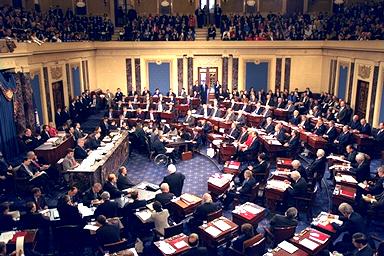Want to Make Hunter-Gatherers Irrational? Expose Them to Free Markets

A well-known example of irrational decision-making people’s tendency to overvalue the things they own (I would pay $1 for a coffee mug but will demand $5 for an identical coffee mug that happens to be mine). This bias of “the mind” is called the “endowment effect” and is often assumed to be universal (and therefore explained as the work of evolution). But in this paper Coren Apicella, Eduardo Azevedo, James Fowler, and Nicholas A. Christakis found that some people and some minds don’t have this bias at all. Rather than being built-in to human nature, they write, the endowment effect may be a habit of mind that people learn in market-oriented societies. If that’s true, it means that (for this trait at least) the hunter-gatherers described in the research were more rational before they were exposed to modern capitalism.
Apicella et al. ran their experiment on 91 Hadza Bushmen, who are among the last hunter-gatherer groups on the planet. In northern Tanzania, where they live, eco-tourism has created an almost-perfect sounding “natural experiment” to test for the effects of contact with modernity, the authors write. This is because some Hadza live near a major road, and have become assimilated into the tourist trade. During the three or four month high season for the tours, 10-20 cars per week will stop at Hadza camps, sometimes hiring Hadza men to take the visitors on hunts. Hadza in this area now make more bows and arrows than they need, so they can sell them to tourists, and they often drop in to a nearby village to buy things with the money they’ve been paid by the tour guides. On the other hand, Hadza who don’t live near the road see very few tourists and aren’t involved in that economy at all.
So the experimenters had two well-contrasted groups of Hadza (who were otherwise genetically and culturally identical)—45 people with “Low Exposure” to tour groups and 46 with “High Exposure.” In both groups, each person was shown two packets of biscuits, told that one was now his/hers, and then asked if s/he’d like to trade for the other. Then the experiment was repeated with two lighters.
Statistical analysis found that the “Low Exposure” Hadza had about a 50-50 chance of trading “their” item for the other—in other words, this group was completely realistic, seeing there was no reason to prefer one of two identical objects over the other. On the other hand, the “High Exposure” Hadza had a 75 percent chance of keeping “their” item rather than trading it. A geographical analysis found that living near the trading village reduced a Hadza’s probability of trading “his” item by nearly 30 percent. This is, the authors write, consistent with the notion that “isolated Hadza display no endowment effect and that some of the novel environmental cues in the HE region led to the emergence of the bias.”
It’s not clear if the “novel environmental cues” involved participating in the modern economy (as a performer or guide or arrow-maker for tourists) or if it was simply perceiving others’ behavior (for example, watching tourists deal with their guides or shopkeepers), but there does seem to be something about exposure to the culture of non-hunter-gatherers that generates the endowment effect.
That market culture gave us modern economics and the thus the very idea of “rational economic man.” And markets are supposed to be efficient machines for finding the true value of the goods and services they trade, regardless of people’s hopes and fears. This is part of the reason conventional wisdom associates free markets with the shedding of traditions, prejudices and other blinders that prevent us from seeing the cold, hard facts. In fact, there have been studies (for instance, this one) which found that people with a lot experience trading in real markets lose the endowment effect.
It’s a surprise then to find that exposure to market mores would seem to make people less rational. But it’s not impossible to reconcile the findings about hunter-gatherers and experienced traders. Perhaps the endowment effect is created by a casual exposure to market culture—occasionally buying or selling, sometimes watching others. Hadza who have never had this exposure lack the effect. On the other hand, for those who do have the effect, becoming an expert in one market can make it go away. In other words, perhaps the endowment effect is an artifact of moderate exposure to markets. People with no exposure lack it; people with lots of exposure can train themselves to lose it.
In any case, the other important lesson of this paper is that, as ever, theories about “the mind” shouldn’t be based on tests run only on minds that are Western, Educated, Industrial, Rich and Democratic, or WEIRD. And that, more generally, it’s always important to check one’s assumptions about what is innate and universal in psychology. “Whenever a pattern of human behavior is widespread, there is reason to suspect that it might have something to do with our evolutionary history,” a pair of biologists recently noted. True enough, but sometimes patterns of human behavior aren’t as widespread as we want to believe, in our eagerness to spin a theory. (People have, in fact, tried to find a reason why the endowment effect must have evolved to be a part of every human psyche—for example, here.) The attractiveness of such theories should make everyone a little cautious about the generalizations on which they rest.
Illustration: Hadza bowmen, via Wikimedia
Follow me on Twitter: @davidberreby





